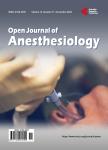Challenges of Improving Intensive Care Medicine in Eritrea: Impact of an Italian Cooperative Project of Educational and Clinical Support
Challenges of Improving Intensive Care Medicine in Eritrea: Impact of an Italian Cooperative Project of Educational and Clinical Support作者机构:Anesthesia and Intensive Care Unit of Emergency Department Careggi Teaching Hospital Florence Italy Anesthesia and Intensive Care Faculty of Medicine University of Florence Florence Italy Department Intensive Care Unit Orotta National Referral Hospital Asmara Eritrea Department of Critical Care Medicine and Surgery Careggi Teaching Hospital Florence Italy First Aid of Emergency Department Careggi Teaching Hospital Florence Italy Tuscany Region Sanitary System Florence Italy.
出 版 物:《Open Journal of Anesthesiology》 (麻醉学期刊(英文))
年 卷 期:2013年第3卷第7期
页 面:315-319页
学科分类:1002[医学-临床医学] 100214[医学-肿瘤学] 10[医学]
主 题:Intensive Care Unit Developing Countries MEWS
摘 要:Intensive care in Africa is available only in teaching or referral hospitals. Here we report the experience of a multidisciplinary collaboration between physicians and nurses of the Emergency Department (First Aid and Intensive Care Unit) of a tertiary referral hospital (Careggi Teaching Hospital, Florence, IT) and physicians and nurses of Orotta National referral Hospital in Asmara, Eritrea. The project was aimed at performing clinical assistance and training on the job to the local staff to improve the standard of care in the local Emergency Department. The duration of the project was initially planned to be 30 months, but unfortunately it was interrupted after 18 months because of lack of funds. The Italian staff was composed of two physicians and two nurses per period. To monitor local ICU activity, a retrospective survey of 36 months was performed. During the 36 months of data collection, 1169 patients were admitted to the ICU. Intra-ICU mortality rate resulted comparable before, during, and after Italian presence. On the contrary, the 28-day mortality resulted significantly lower bo th during and after the Italian stay. After project interruption, the Italian staff maintained contact with the Eritrean ICU personnel, who were invited to attend the Italian ICU for one month per year, and collected information about Orotta ICU activities.



